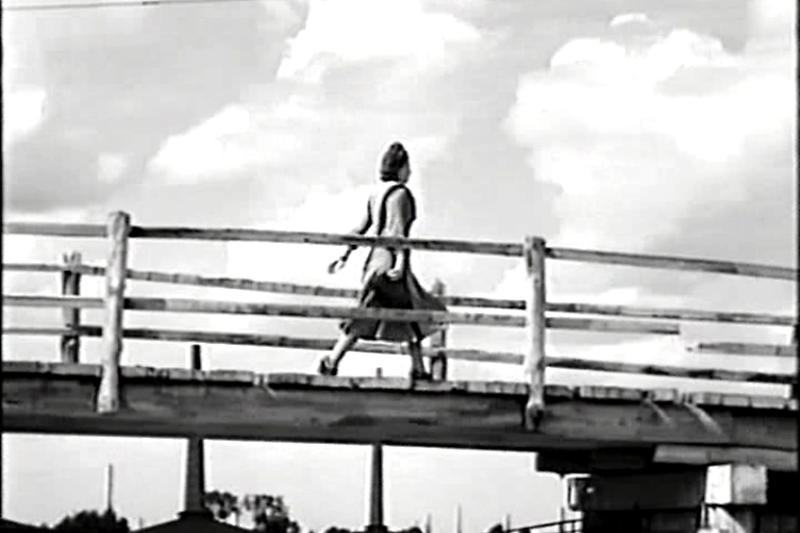
Die Brücke
The Bridge

The refugees from territories east of the Oder-Neisse line are greeted with suspicion when they arrive in an eastern German town. Their camp is connected with the town only by a wooden bridge – a symbol of the flimsy link with the life of the town. The experiences of expulsion and flight are shown as drastically as the local population’s lack of acceptance. Only after a devastating fire in the town do the new arrivals receive some recognition for their selfless efforts.
Not to be confused with a work by Bernhard Wicki of the same title, the film uses a passionate love triangle to depict the problems of resettlement.
35mm | s/w / b/w
Arthur Pohl
Fritz Arno Wagner
Erwin Kropf
Margarete Steinborn
Erich Zander, Arthur Günther
Wolfgang Zeller
Fritz Wagner, Arno Paulsen, Steffie Spira, Albert Venohr, Hans Klering, Albert Hehn, Hans Stiebner, Hans Emons, Elfriede Dugall, Herbert Scholz u.a.
Arthur Pohl
DEFA
PROGRESS FILM-VERLEIH
Immanuelkirchstr. 14b
10405 Berlin
Germany
Tel: +49.30.240 034 51
Fax: +49.30.240 034 59
verleih@progress-film.de
www.progress-film.de
Arthur Pohl - born 1900 in Görlitz, died in 1970. After studying art in Breslau and Berlin, he worked as a set designer, and in 1928 directed his first production at a theatre in Dusseldorf. He was hired by DEFA after the war, where he shot THE BRIDGE, his first film. He emigrated to West Germany in the late 1950s, but on account of his GDR biography received few major commissions.
DIE JUNGEN VON KRANICHSEE (1950)
CORINNA SCHMIDT (1951)
DIE UNBESIEGBAREN (1953)
POLE POPPENSPÄLER (1954)
SPIELBANK-AFFÄRE / PARKPLATZ ZUR GROßEN SEHNSUCHT (1957)
DAS HAUS VOLLER GÄSTE (1960)
KLEINE GESCHÄFTE (1962)
RANDBEZIRK (1963)